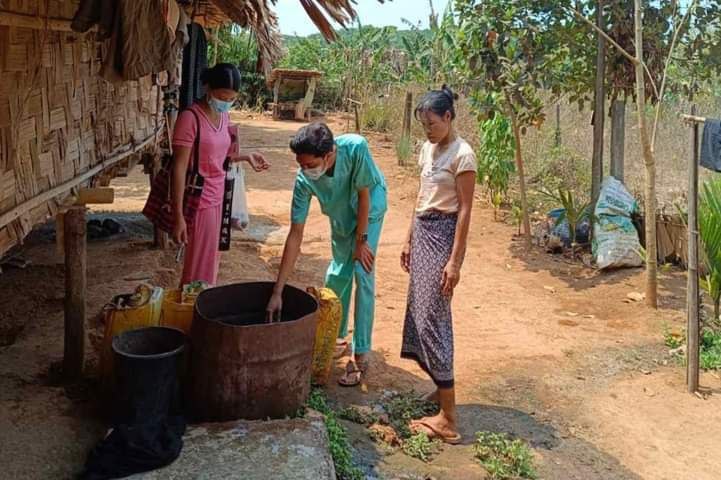Lat Pan or Red-silk cotton trees (Salmalia malabrica) and Myanmar’s folk culture are inseparable, as the dried flowers of the red-silk cotton trees are cooked with beef, which has been the traditional cuisine of Myanmar since the time of kings.
But, the Red-silk cotton trees blossom in summer wakes the country’s people up to the danger of rabies as the disease’s occurrence is notorious among the Myanmar community with a traditional saying, “the time of Lat Pan blossoming is a time of rabies”. It means that rabies occurrence is high in the summertime when “lat pan” tree blossom.
Rabies is preventable through vaccination and post-exposure immunization. Yet, nearly 70,000 people still die from the disease every year across the world, mostly in rural areas.
In fact, to tackle this disease, a multi-sectoral response is needed. Given that 99 per cent of human infections are acquired from dog bites, mass vaccination of dogs — combined with the management of stray dogs and responsible dog ownership — is the most cost-effective way to eliminate the disease.
Rabies is preventable through vaccination and post-exposure immunization. Yet, nearly 70,000 people still die from the disease every year across the world, mostly in rural areas.
According to a 2018 survey, there are over 4 million dogs in Myanmar, and this number is too high for our country. Nonetheless, if we ensure that human vaccines and immunoglobulin are affordable and accessible, we can reduce the fatality rate, which is almost 100 per cent if post-exposure prophylaxis is not given before symptoms develop.
Vaccinating 70 per cent of dogs can reduce human cases to zero, and the cost of dog vaccines is much lower than that of post-exposure prophylaxis for human beings.
Whenever we read stories about rabies and animal bites in the media, registration of cats and dogs is the first idea that comes into our head.
Registration of cats and dogs is the first step to resolving animal control issues. At the same time, we need to raise awareness about responsible ownership of pets.
To ensure responsible pet ownership and to prevent animals from causing a nuisance to the public, registration of stray animals is not being allowed.
This reflects that ownership of pets comes with responsibilities, and if one cannot fulfil them, then it would be better to forego pets.
Meanwhile, local communities’ education is also a key priority to ensure that people who get bitten seek prompt treatment. To achieve a target of no rabies deaths by 2030, we must recognize that rabies elimination is a health priority.










